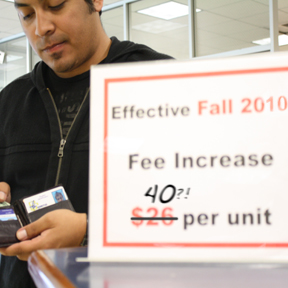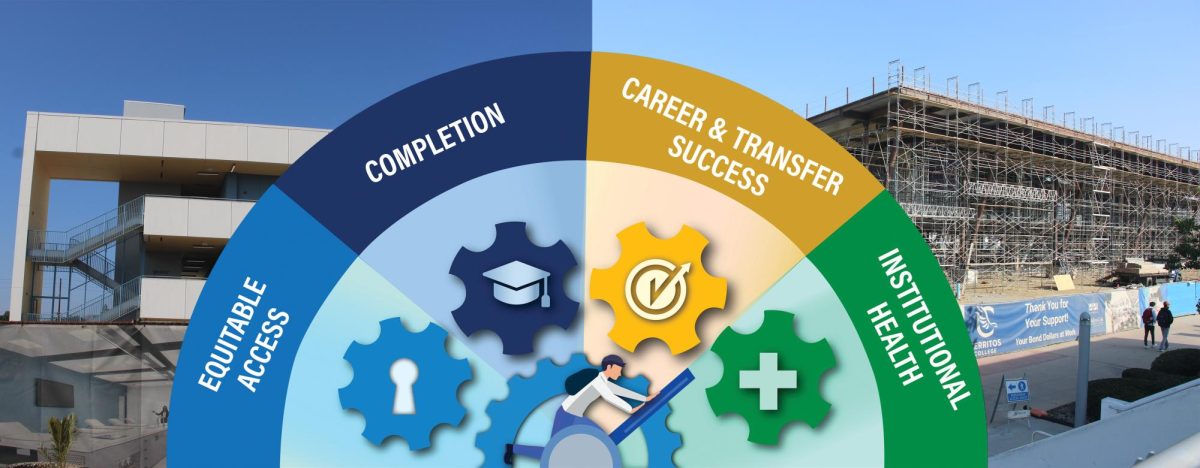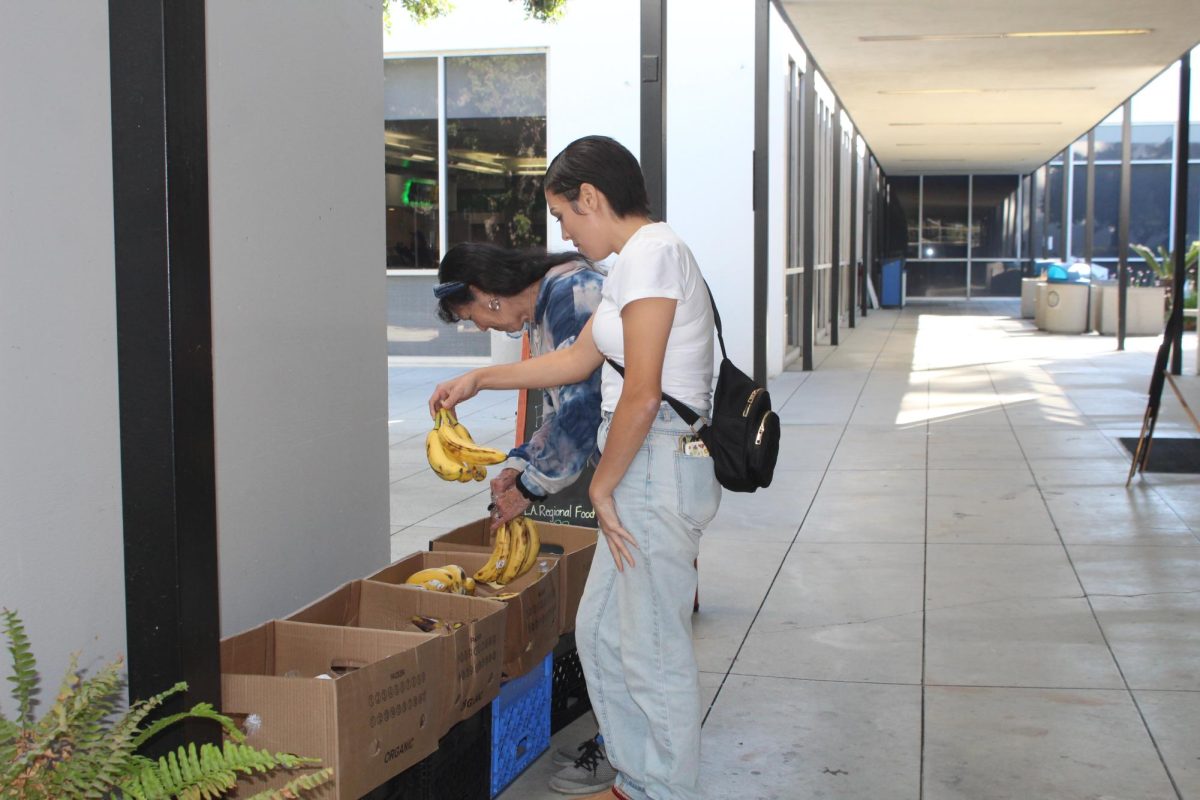The Legislative Analyst’s Office has proposed a $14 per unit increase for California’s community colleges which would raise tuition fees from the current $26 per unit to $40 per unit.
In a webcast released on Feb. 25 by the LAO along with its recommendations for the Governor’s 2010-11 budget proposal, Director of Higher Education Steve Boilard stated the cost adjustment would “make sense” because it would “generate about $150 million in new fee revenue, which would provide funding for about 26,000 more full-time community college slots and back-fill an allocated $22 million cut that the Governor had proposed for the community colleges.”
According to the report, the fee increase would have “no effect on most students’ net costs due to multiple state and federal aid programs,” such as the long-standing Board of Governor’s Fee Waiver (BOGFW).
Cerritos College Financial Aid Advisors like Juan Mercado will keep an eye out for any change in legislation in order to help students who might find themselves as new BOGFW recipients.
“More students will probably be eligible and will find out when they fill out a FAFSA,” Mercado stated.
The BOGFW is automatically awarded to California community college students whose Estimated Family Contribution (EFC), as determined by filling out BOGFW application or FAFSA, is less than the Cost of Attendance (COA)—an amount determined by the state and directly affected by state-issued tuition fee hikes.
The LAO estimates that “about 90 percent of CCC students would qualify for either a fee waiver or a full or partial tax offset to their fees [through the federal American Opportunity Tax Credit].”
While there has been no change in the Governor’s current 2010-11 budget proposal for higher education which originally did not call for any specific fee increase at California community colleges, word of the possible modification has spread across campuses state-wide and has already caught the attention of Cerritos College faculty.
“We always track legislation,” said Vice President of Academic Affairs William Farmer, Jr., “this proposal is still early in the process so I don’t have a secure idea if the state will approve of this.”
While Boilard claims “keeping fees low does nothing to help lower-income students” since the LAO calculates that most students attending California community colleges already receive state-issued financial assistance, Farmer believes that students who currently do not meet the standards of necessity but are struggling to pay for school will likely give up on pursuing a higher education altogether .
“If [this proposal] does go through, it will have a negative impact on students because whenever enrollment fees increase, enrollment decreases,” Farmer said.
Students like undecided major Richard Cervantes share Farmer’s concern. “There’s a reason people attend community colleges and that’s because they’re not as expensive as UCs. Not everyone has that kind of money so this increase is not fair,” said Cervantes.
He, like other local community college students who receive “some, but not much” financial assistance from the state will think twice about attending school if the fee increase goes into effect. “Personally, I will be asking myself if I want to continue at Cerritos,” he said.
With the possible fee increase looming over California’s community colleges, Farmer wants to remind students they have the right to take an active approach in important decisions which affect their education and future.
Students who wish to have an impact on whether or not next year’s budget will reflect the fee hike can “contact legislatures and work through student government lobbying efforts,” Farmer said. “There are many groups to connect with and increase the power of the student voice on the issue,” he added.








